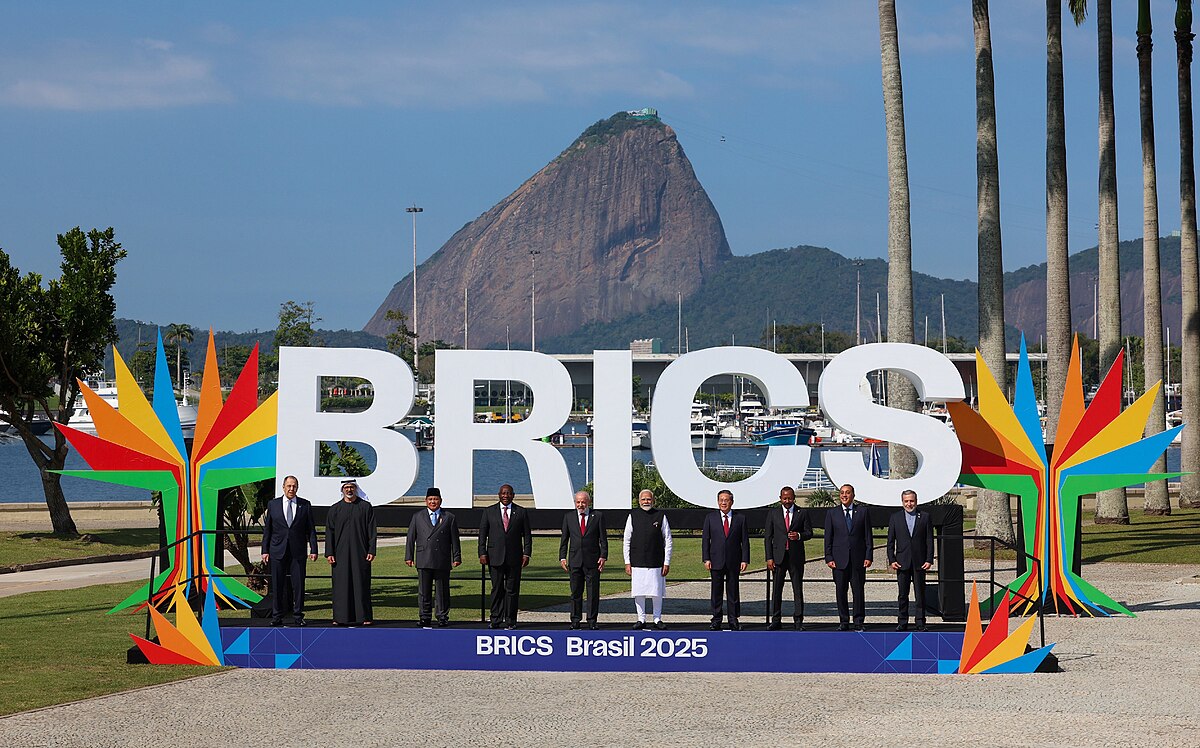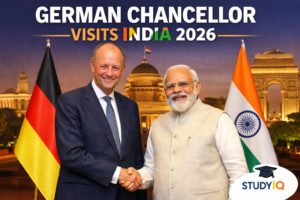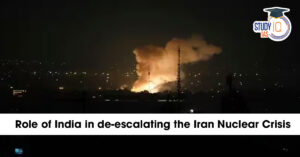Table of Contents
The 17th BRICS Summit took place in Rio de Janeiro, Brazil, on 6–7 July 2025, under the chairmanship of Brazilian President Luiz Inacio Lula da Silva. The summit was held in the backdrop of multiple global crises—rising geopolitical tensions, the Gaza conflict, threats of terrorism, and disruptions in global trade systems. Prime Minister Narendra Modi represented India and played a pivotal role in shaping the summit’s outcomes.
17th BRICS Summit 2025
The 17th BRICS Summit 2025 was held in Rio de Janeiro, Brazil.
- Theme: Strengthening Global South Cooperation for More Inclusive and Sustainable Governance.
- Indonesia officially joined BRICS, while Belarus, Bolivia, Kazakhstan, Cuba, Nigeria, Malaysia, Thailand, Vietnam, Uganda, and Uzbekistan were welcomed as BRICS partner countries.
- India will assume the BRICS Chairship and host the 18th BRICS Summit in 2026.
What is BRICS?
BRICS is a multilateral group comprising Brazil, Russia, India, China, and South Africa, representing major emerging economies. In 2025, Iran was formally inducted into BRICS, expanding its geopolitical and economic weight.
-
Established: 2006 (originally as BRIC; South Africa joined in 2010)
-
Represents: ~40% of the world population, ~25% of global GDP
-
Objective: Promote peace, development, and reform in global governance by representing the voice of the Global South.
Prime Minister Narendra Modi’s Participation
PM Modi attended the summit and addressed two key sessions:
-
Reform of Global Governance and Peace & Security
-
Strengthening Multilateralism, Economic-Financial Affairs, and Artificial Intelligence
He also held bilateral talks with Brazilian President Lula da Silva and posted his views on BRICS’ relevance on X (formerly Twitter).
Key Themes Addressed by PM Modi
1. Reform of Global Governance Institutions
-
Urged urgent reform of global institutions like:
-
UN Security Council (UNSC)
-
International Monetary Fund (IMF)
-
World Bank
-
World Trade Organization (WTO)
-
-
Argued that 20th-century institutions are ill-equipped to handle 21st-century challenges.
-
Advocated for greater representation of the Global South in decision-making bodies.
2. Peace, Security, and Counter-Terrorism
-
Highlighted the April 2025 Pahalgam terror attack in Jammu & Kashmir.
-
Called terrorism a grave threat to humanity and urged zero tolerance.
-
Criticized double standards in dealing with terrorism.
-
Demanded strong global action against:
-
State sponsors of terrorism
-
Those providing safe havens
-
Nations that fund or promote terrorism
-
3. Middle East Stability and Gaza Crisis
-
Supported a peaceful diplomatic resolution to the Israel-Palestine conflict.
-
Expressed concern over the humanitarian crisis in Gaza.
-
Welcomed Iran’s inclusion in BRICS but urged balanced diplomacy in the Middle East.
4. Economic Resilience and Multilateralism
-
Stressed the importance of local currency trade mechanisms to reduce dollar dependence.
-
Advocated for expansion of the New Development Bank (NDB).
-
Suggested reforms for NDB to follow:
-
Demand-driven financing
-
Long-term sustainability
-
5. Artificial Intelligence (AI) and Technology Cooperation
PM Modi made four key suggestions:
| Proposal | Purpose |
|---|---|
| BRICS NDB to be demand-driven | Align development projects with national priorities |
| Establish a Science & Research Repository | Share innovation across the Global South |
| Secure & Resilient Mineral Supply Chains | Ensure access to critical resources like lithium, cobalt |
| Promote Responsible AI | Develop ethical AI frameworks without hindering innovation |
Rio de Janeiro Declaration 2025
After the summit, BRICS countries adopted the ‘Rio de Janeiro Declaration’, which included:
-
Strong condemnation of terrorism (including the Pahalgam attack)
-
A call for UNSC reforms
-
A push for responsible AI governance
-
Commitment to climate justice and sustainability
-
Support for peaceful conflict resolution in Gaza, Ukraine, and other regions
India’s Strategic Objectives at BRICS 2025
-
Championing the Global South in global decision-making
-
Countering unilateralism and Western protectionism
-
Expanding India’s digital and AI diplomacy
-
Ensuring global support against terrorism
-
Building alliances for reforms in global governance
Challenges and Outlook
While BRICS represents a significant geopolitical grouping, challenges remain:
-
Diverse Interests: Member countries have varying political systems, economic priorities, and strategic interests, which can complicate consensus-building.
-
Geopolitical Rivalries: The inclusion of Iran introduces new dynamics amid Middle East conflicts and sanctions regimes.
-
Implementation Gap: Translating summit declarations into concrete actions, especially in reforms of global institutions, remains difficult.
Nonetheless, the 17th BRICS Summit serves as a critical forum for India to assert its global leadership and advance its vision of a just, peaceful, and prosperous world order.
Conclusion
Prime Minister Narendra Modi’s participation in the 17th BRICS Summit highlights India’s evolving role on the global stage as a champion of reform, security, and innovation. The summit’s focus on global governance reform, counterterrorism, economic resilience, and responsible AI underscores the multifaceted challenges facing emerging economies today. India’s leadership in BRICS not only strengthens South-South cooperation but also reinforces its strategic objective of shaping a multipolar, inclusive, and equitable global order.


 German Chancellor Visit to India in 2026...
German Chancellor Visit to India in 2026...
 Iran Nuclear Crisis and India’s Role f...
Iran Nuclear Crisis and India’s Role f...
 H1B Visa Program, Beneficiaries, Eligibi...
H1B Visa Program, Beneficiaries, Eligibi...

























